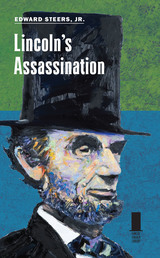
The second volume in the Studies in Interpretation series delves further into the intricacies of sign language interpreting in five distinctive chapters. In the first chapter, Lawrence Forestal investigates the shifting attitudes of Deaf leaders toward sign language interpreters. Forestal notes how older leaders think of interpreters as their friends in exchanges, whereas Deaf individuals who attended mainstream schools possessed different feelings about interpreting.
Frank J. Harrington observes in his chapter on British Sign Language-English interpreters in higher education that they cannot be viewed in isolation since all participants and the environment have a real impact on the way events unfold. In Chapter Three, Maree Madden explores the prevalence of chronic occupational physical injury among Australian Sign Language interpreters due to the stress created by constant demand and the lack of recognition of their professional rights.
Susan M. Mather assesses and identifies regulators used by teachers and interpreters in mainstreaming classrooms. Her study supports other findings, including the success of ethnographic methods in providing insights into human interaction and intercultural communication within classroom settings. The fifth chapter views how interpreters convey innuendo, a complicated undertaking at best. Author Shaun Tray conducts a thorough examination of innuendo in American Sign Language, then points the way toward future research based upon ethnography, gender, and other key factors.

In the century that followed Mexico’s independence from Spain in 1821, Beezley maintains, sentiments of nationality were promulgated by people who were concerned not with the promotion of nationalism but with something far more immediate—the need to earn a living. These peddlers, vendors, actors, artisans, writers, publishers, and puppeteers sought widespread popular appeal so that they could earn money. According to Beezley, they constantly refined their performances, as well as the symbols and images they employed, in order to secure larger revenues.
Gradually they discovered the stories, acts, and products that attracted the largest numbers of paying customers. As Beezley convincingly asserts, out of “what sold to the masses” a collective national identity slowly emerged. Mexican National Identity makes an important contribution to the growing body of literature that explores the influences of popular culture on issues of national identity. By looking at identity as it was fashioned “in the streets,” it opens new avenues for exploring identity formation more generally, not just in Mexico and Latin American countries but in every nation.
Check out the New Books in History Interview with Bill Beezley!

What we have here is another mighty slim volume from Michael Feldman, best known (when known at all) for his public radio show "Whad'ya Know" (sic). Feldman, who spouts off about things he knows "not much" about weekly, here writes them down:
· how to get your own radio show and what you can do with it once you do
· paranoia
· marriage (or as Feldman likes to refer to it, "a long-term bad relationship")
· Hitler
· SUVs
· child-rearing (although it sounds like it's the author who is being reared)
· a number of short pieces on places he and his crew have visited for their "remote possibilities"
· more references to "gentiles" than absolutely necessary (seems to be an issue for Feldman, although he is tickled with the
notion that, to a Mormon, he is one)
· some attempts to misrepresent scientific or social research for humorous purposes
· many personal revelations that prove the examined life is not necessarily worth living either
· and pages and pages of fluff.
Mr. Feldman has not been compared, to our knowledge, to S. J. Perlman.
But here is some of what Michael Feldman says in Something I Said:
"The paranoid no longer is: paranoia has outlived its usefulness when everybody is out to get us."
"Take the phrase 'no problem': I can use it, although it is the very opposite of my two-word world view ('Nothing works')."
"Whatever latitude beauty may have in the eye of the beholder, funny is not readily apparent to all, and, who knows, they may be right. More importantly, they may be bigger."
Includes a music CD by Michael Feldman and John Sieger.
READERS
Browse our collection.
PUBLISHERS
See BiblioVault's publisher services.
STUDENT SERVICES
Files for college accessibility offices.
UChicago Accessibility Resources
home | accessibility | search | about | contact us
BiblioVault ® 2001 - 2025
The University of Chicago Press









